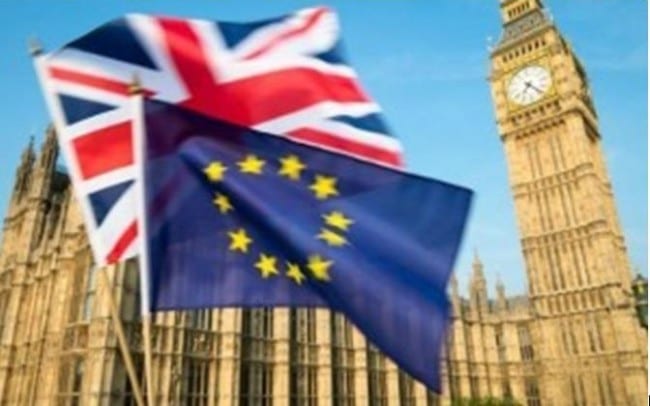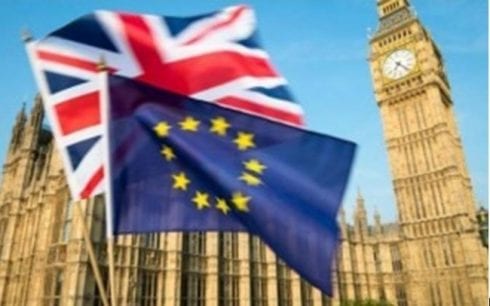We’re all well aware of the impact the Brexit vote had on the economies of the UK and EU states. Immediate chaos ensued, due to the uncertainty of how exactly the UK would leave the EU and what that would do to the free market, freedom of movement, and other vital realities of EU membership.
In the short term, the pound plummeted, financial service companies panicked, and analysts began picking apart the different possible scenarios. In the months after the vote, much disagreement and maneuvering was seen among the political elite. Even those in favour or Brexit conflicted on the details of whether to negotiate a hard or soft Brexit. Some looked for ways to delay the process, while others wanted to start negotiations immediately. Those looking for clarity would be stifled at every turn, and without it, stability was impossible. To say Brexit brought a lot of uncertainty to the marketplace would be an understatement.
Now, over a year since the Brexit referendum, a lot has changed. Contradictory statements have been made by Theresa May’s government, a government that had to be reformed after her misguided call for an election to try to consolidate her party’s power. New coalition members have different aims to the conservatives. Even the Conservative Party itself has conflicting opinions, and does not always seem to have a consensus despite statements to the press.
Of course, the realities of Brexit are only partly in Britain’s hands. To avoid other states considering leaving the EU, the EU itself has promised to make Brexit as difficult as possible for Britain. It won’t be scrambling to find loopholes for the UK to use to keep things as they were. No, if Brexit is going to happen, they say, it should be a hard Brexit – one that does in fact change the status quo, rather than paying lip service.
So, what is the current outlook? What effect does it look like Brexit will have on European economies?
Freedom of Movement Ends?
Among contradictory statements made by members of the Conservative Party are whether or not freedom of movement between the UK and EU states will end when Brexit occurs. Home Secretary Amber Rudd stated that there would be an implementation period post-March 2019, expected to last two years, so that there would be “no cliff edge” for employers. Many businesses breathed a sigh of relief at this update.
However, just hours later, immigration minister Brandon Lewis said that freedom of movement will end in March 2019.
So which will it be? That remains unclear. What is clear, however, is that this is a major factor in the future of the economies of both the UK and the EU.
Immigrants from the EU play a huge part in Britain’s democracy. They do high-skill jobs, as well as menial work, and are part of the anatomy of many successful UK businesses. Their removal from the workforce would have huge implications. And not just for the UK. This would mean all those workers becoming part of Europe’s unemployed.
Furthermore, businesses will no longer be able to move around the EU, having major implications on how and where they conduct their business.
Trade restrictions
Polls have shown that most Brexit supporters want free trade to remain between the UK and EU, but the EU is not having it. Again, they will not let Britain choose to abandon major principles of the bloc while still receiving the benefits that suit them.
It looks like Britain is heading towards a hard Brexit, with free trade no longer on the table, and trade agreements needing to be renegotiated with each individual EU state. This is no doubt going to impact economies in the UK and in Europe. Companies throughout the bloc source their inventories from different countries. After Brexit, it will be more difficult, and probably more expensive, for companies in the UK to import goods, and vice versa. Of course, Britain will take the biggest hit in this respect, as the rest of the EU nations will still have free trade among themselves.
Not only will production companies be hit hard, but the financial services industry will as well. Financial services companies will have to reconfigure the way they conduct their business, including the status of their EU clients.
London’s fund management industry is going to be hit particularly hard, as a new report shows. Asset managers in London oversee more than €1.2 trillion in the EU. This is more than their peers in France, Germany, and Italy combined. New EU guidance suggests that Brexit will limit their abilities to manage foreign money.
While the UK was in the position to start negotiations on its own terms, trade agreements are clearly reliant on trade partners. Incidentally, this is another aspect that has led to the euro strengthening against the pound. Investors are, for the moment, finding more stability in the European marketplace than they would in the UK. However, that may soon change, with turmoil in the UK economy and political sphere spilling over into the rest of Europe.
Possible European Recession
It is for these reasons that analysts, including investment bank, ING, say that Brexit could trigger a continent wide recession. They stated:
“The political backdrop means there are significant challenges and, in the UK’s case, this uncertainty could see more corporates choosing to sit on their hands rather than investing in their businesses. British households could also become more cautious, leading to a sharper slowdown in activity than we are anticipating… Bad politics, combined with economic dislocation and financial contagion would likely lead to recession across Europe.”
Reasons For Optimism
There are, however, those who have called on all parties to remain calm. They point out that the European Union is unlikely to cut off its nose to spite its face. Yes, they need to come down hard on Britain in order to prevent other states from following suit. But they will do everything they can to prevent recession, including making the necessary trade agreements to hang on to what is currently the status quo.
The British government also knows how much it has to lose. Although comments from the government about immigration are unclear and contradictory, they are well aware of the disastrous impact total restriction of movement would have. It is not overly optimistic to speculate that Amber Rudd’s assertion – that freedom of movement will not end in March 2019 – is the more accurate assessment.
We are entering the realm of the unknown. We cannot accurately predict Brexit’s impact because we have no point of reference to which to compare it. It’s literally a matter of “wait and see”.
Which is actually a positive thing. Every party involved, from the UK government, to the opposition, to the heads of the EU, to the leaders of each and every EU state, are keeping a careful eye on developments. Each has their own best interests at heart, and with regards to free trade and freedom of movement, their own best interests coincide with the UK’s best interests.
So, while no one can say for sure what will happen over the next two years, it is unlikely that the EU will do anything cataclysmic. Difficult negotiations will follow, and hopefully we’ll end up on the other side with as little collateral damage as possible.









